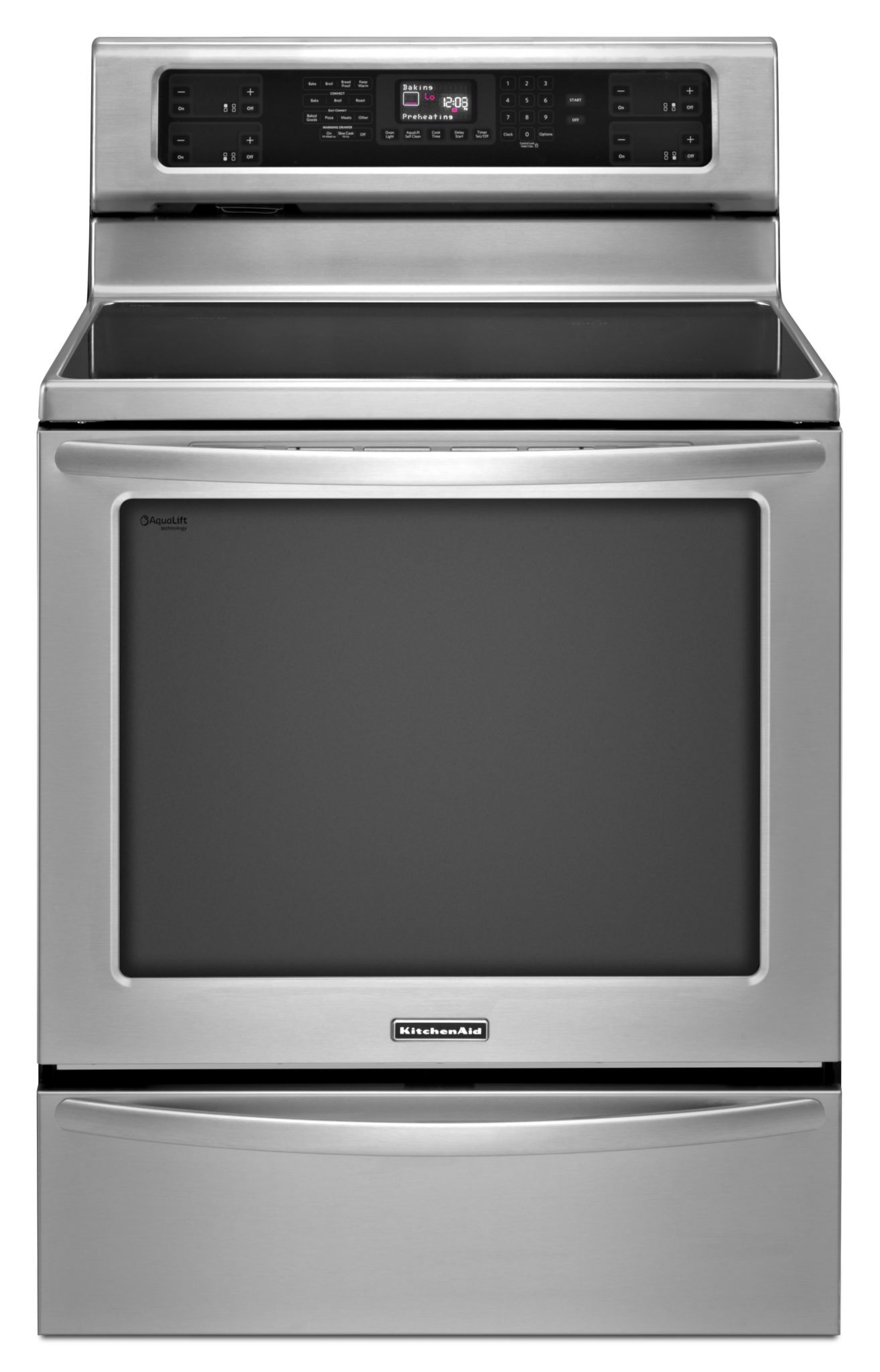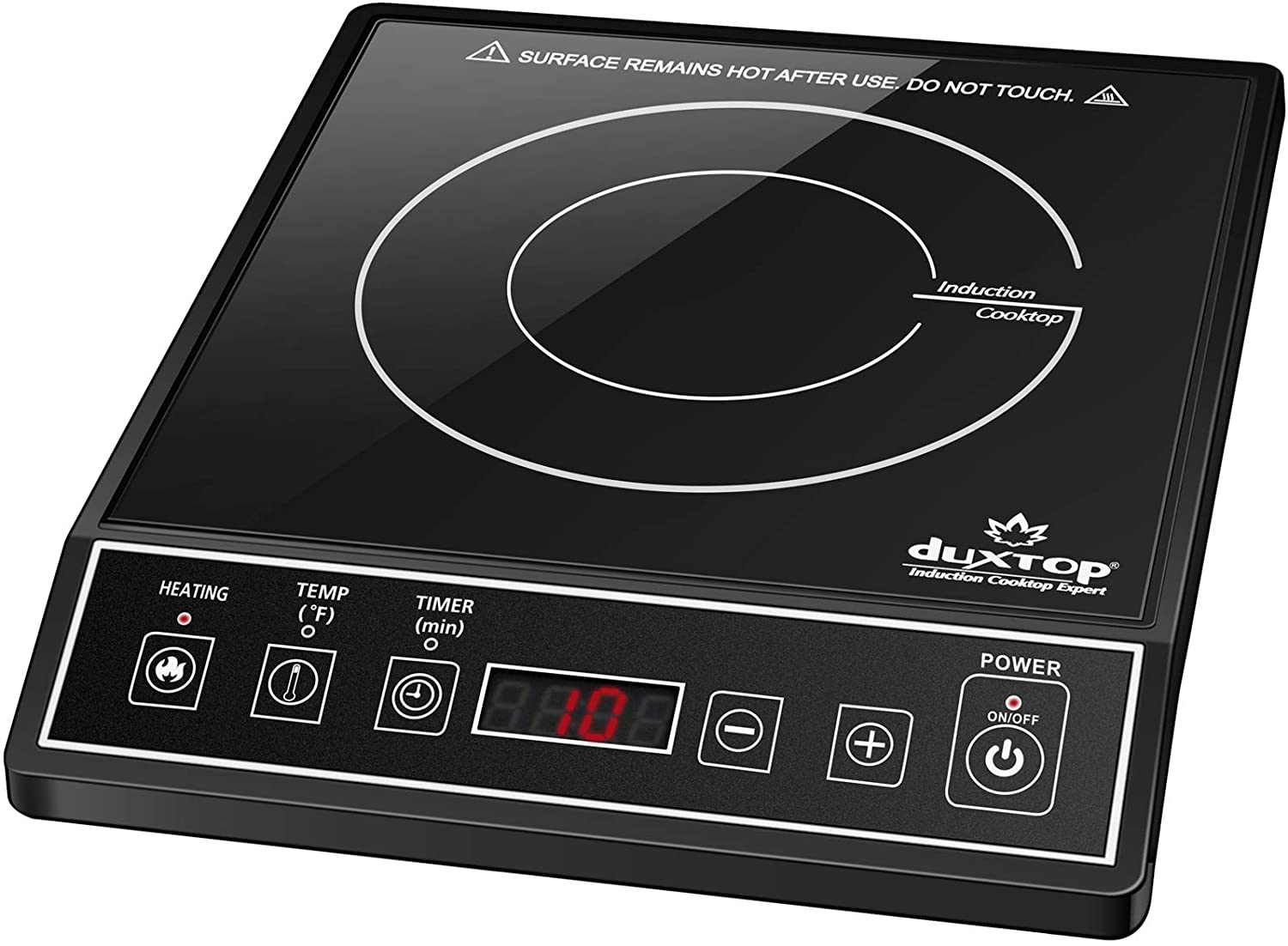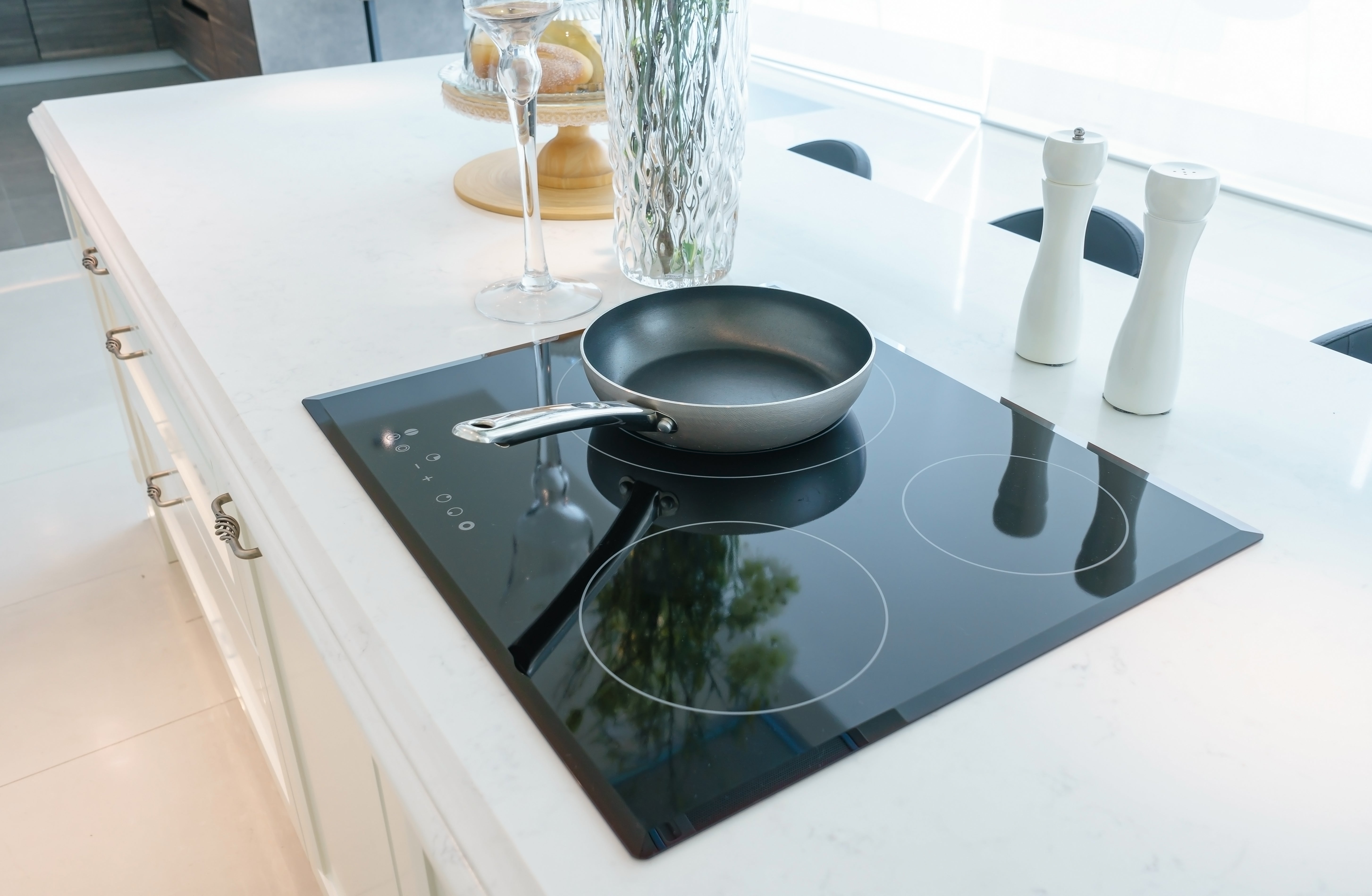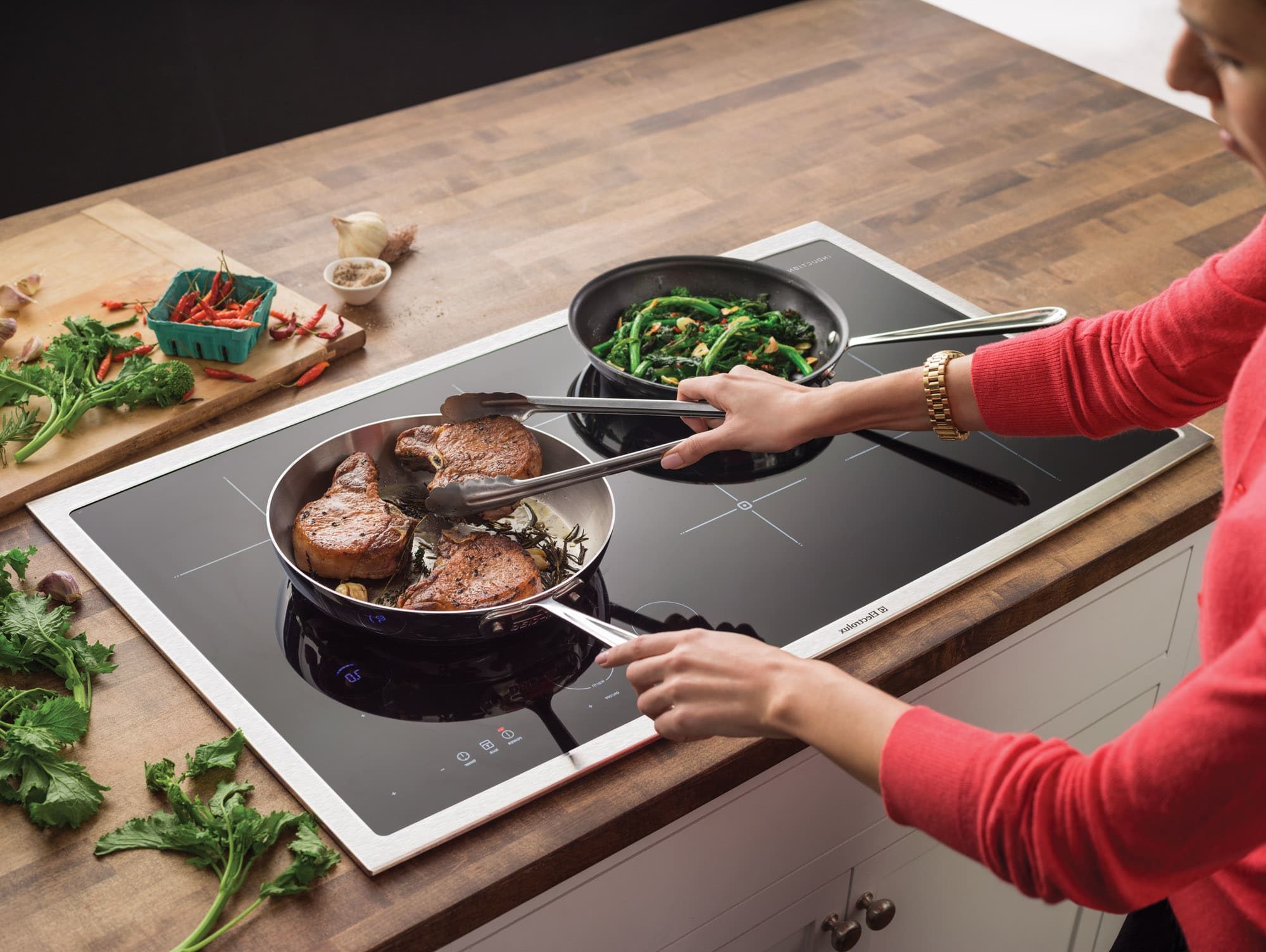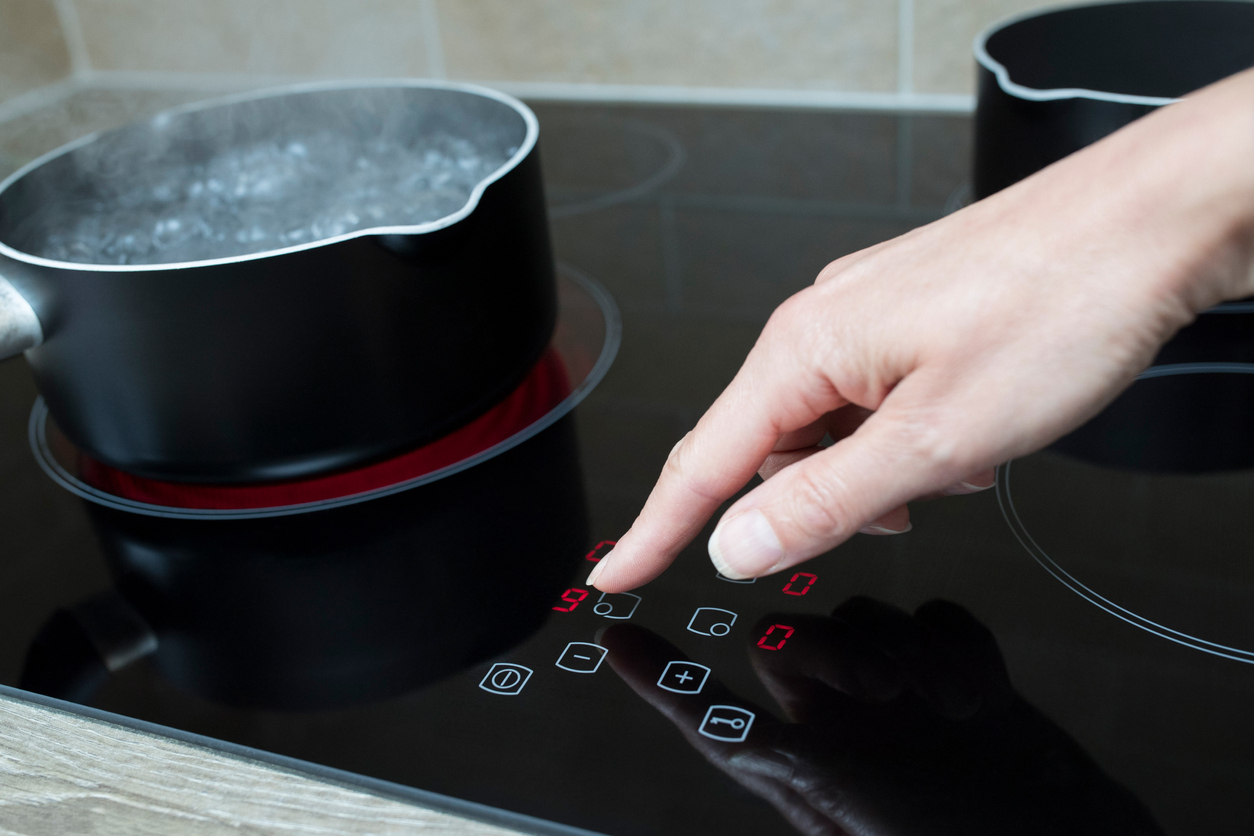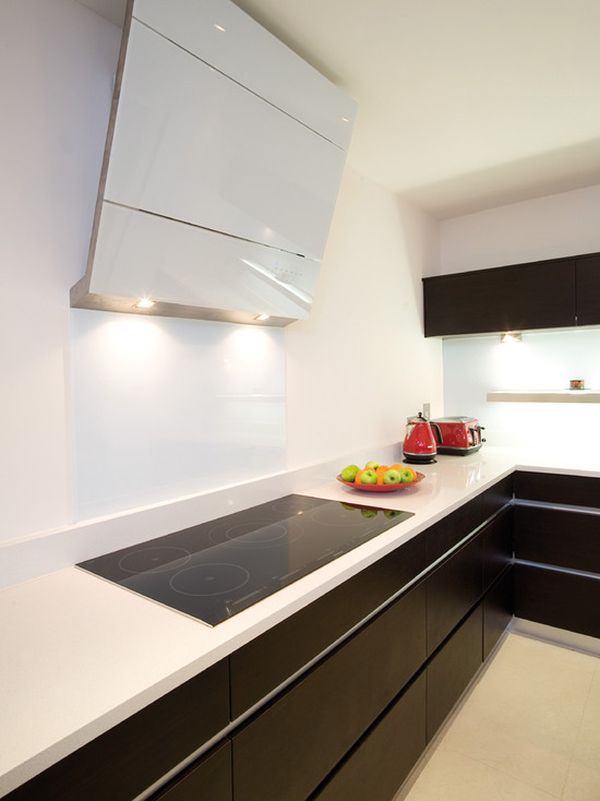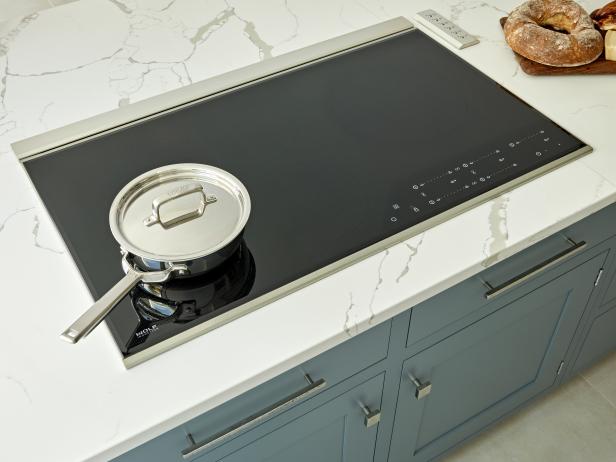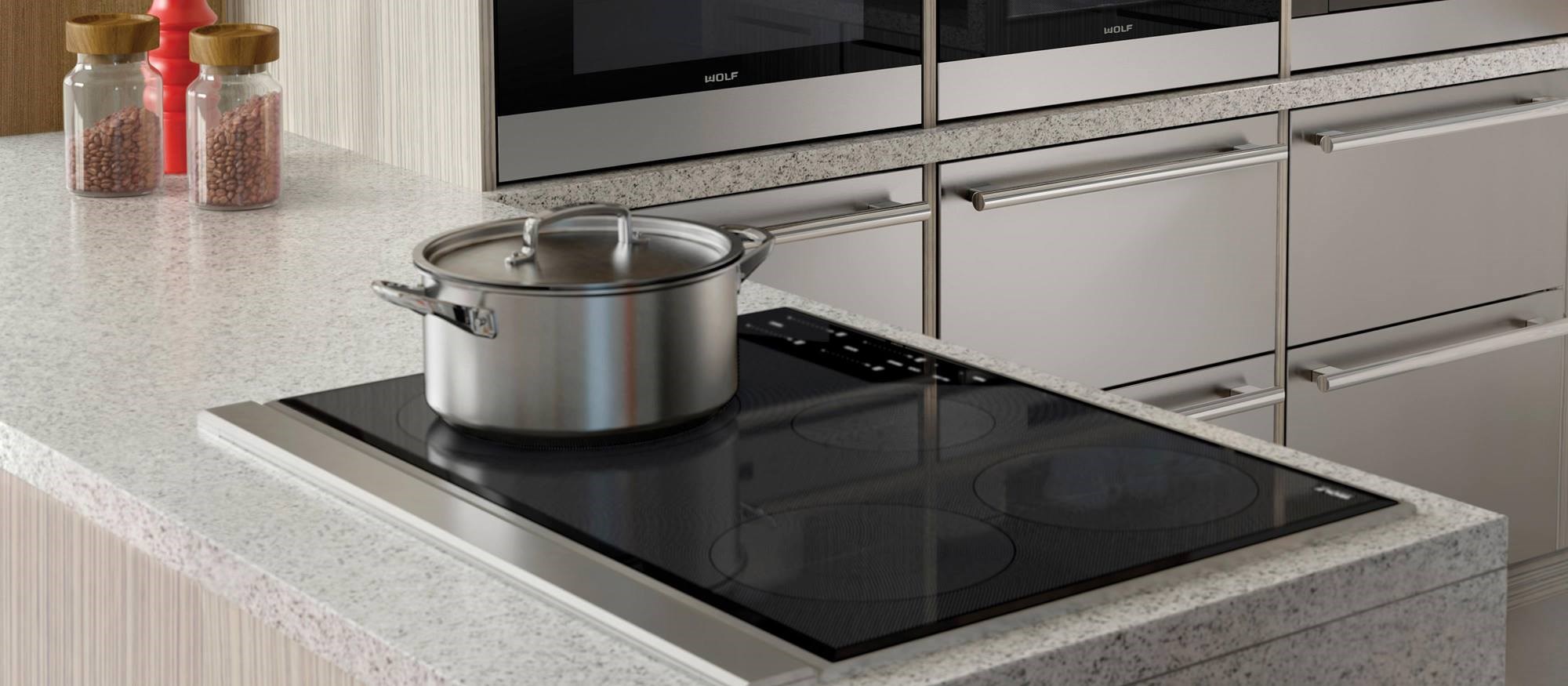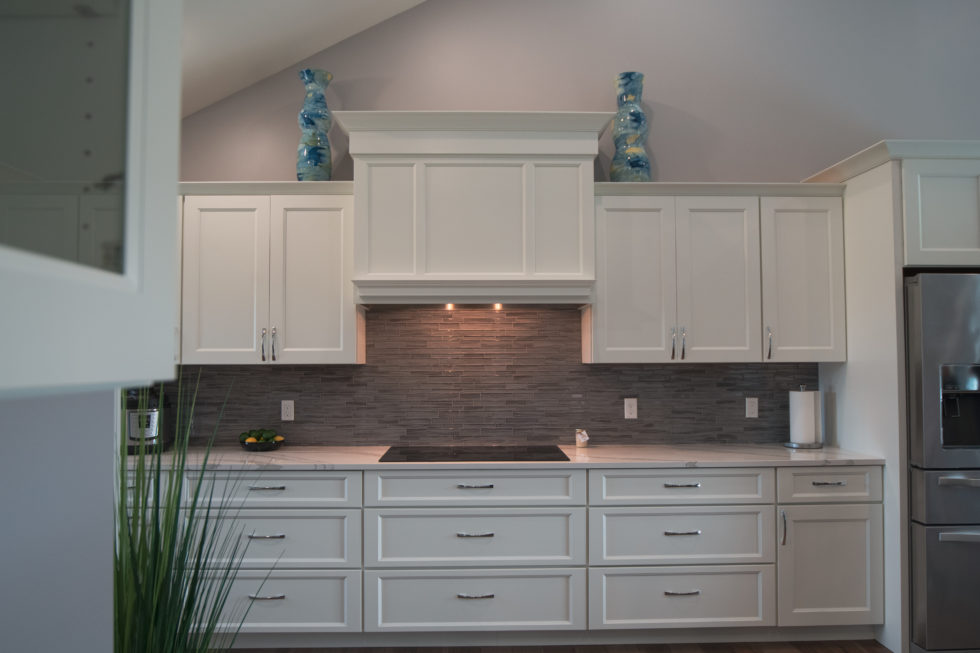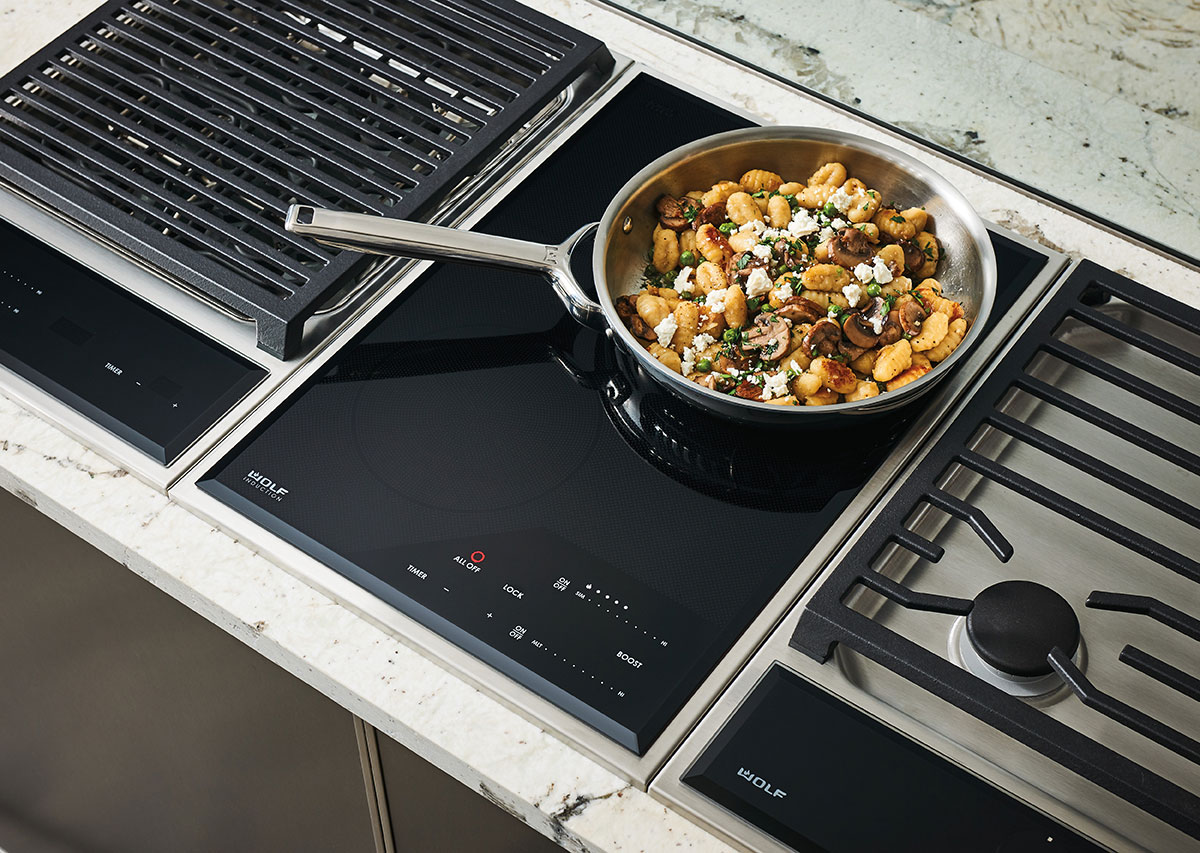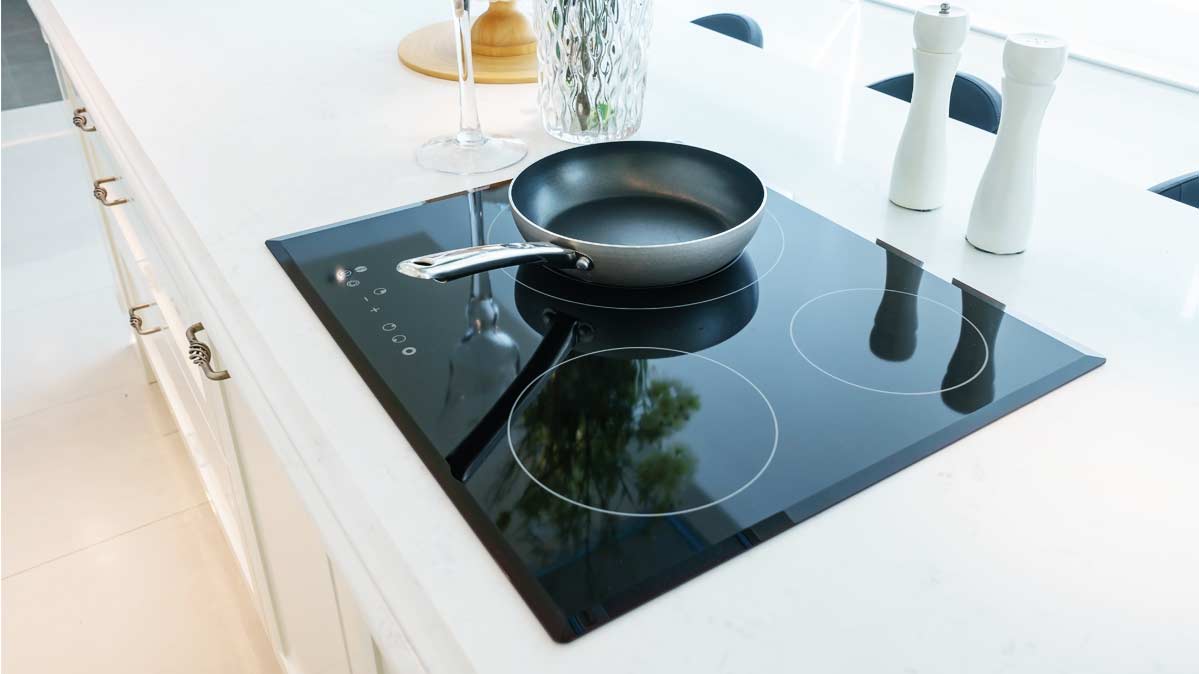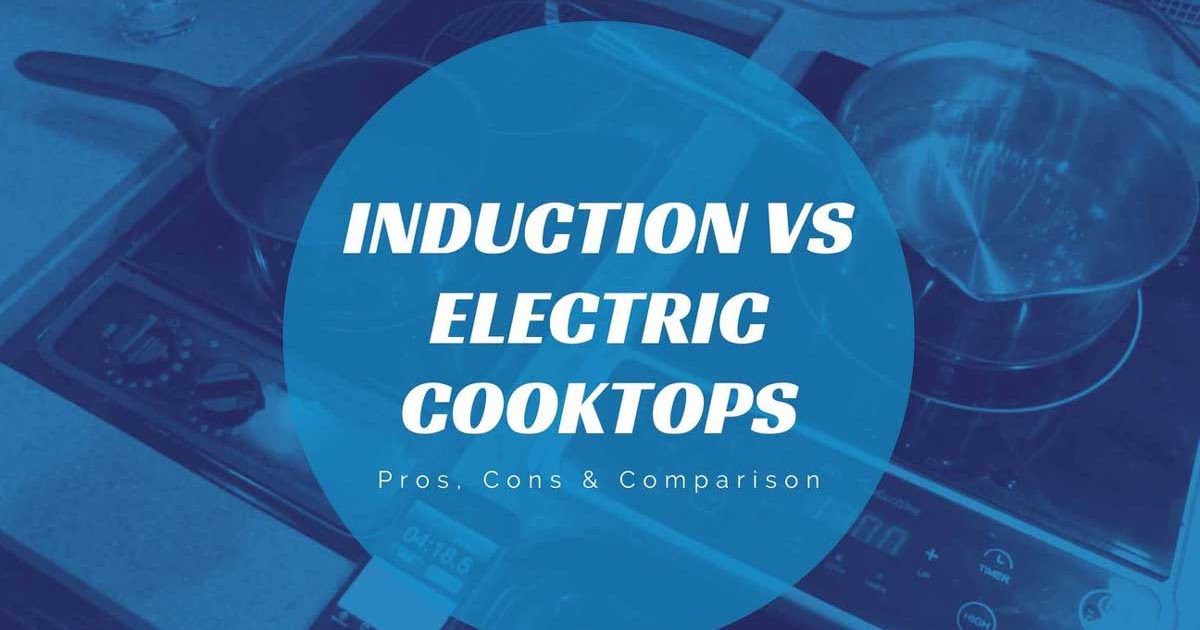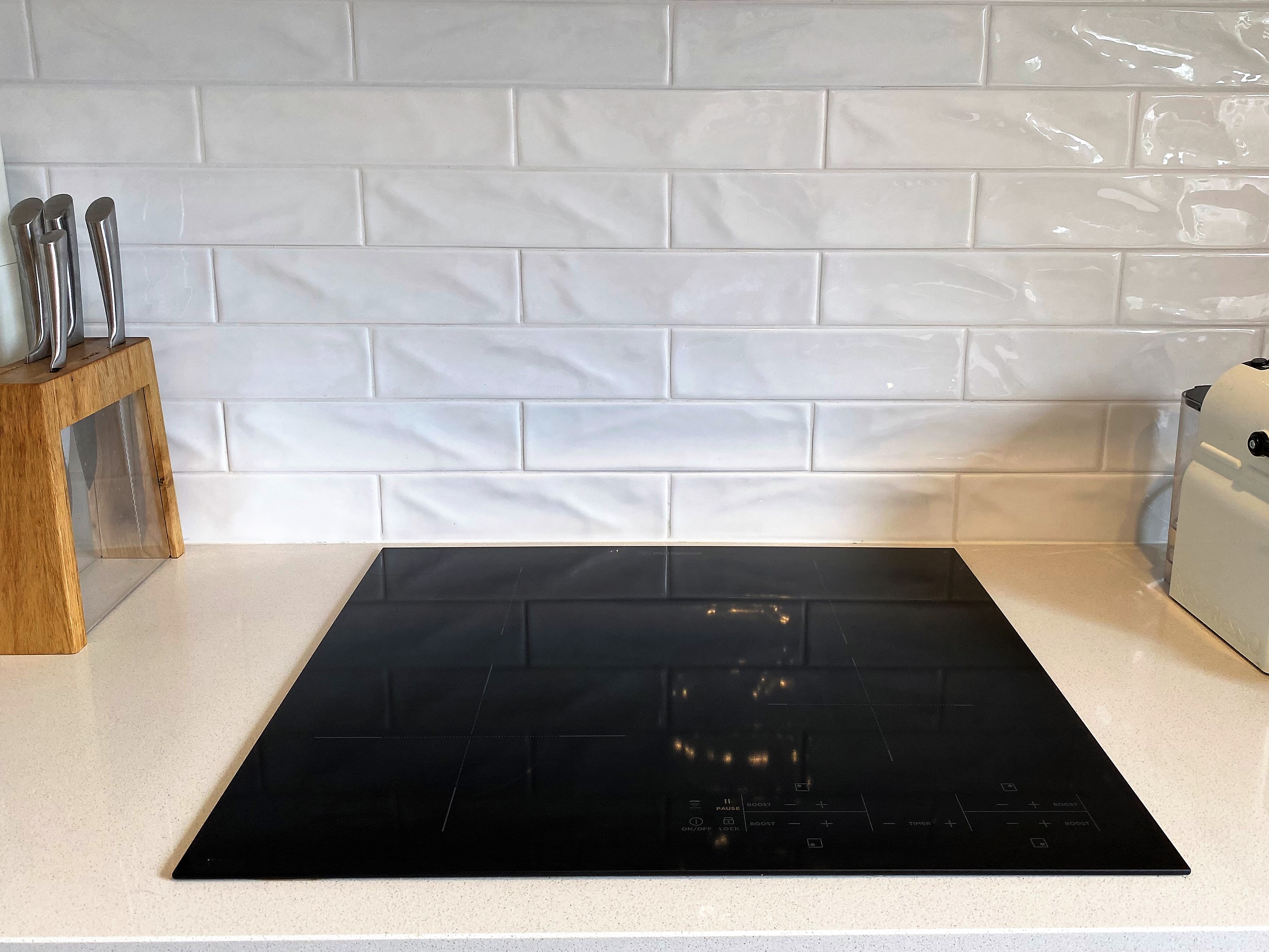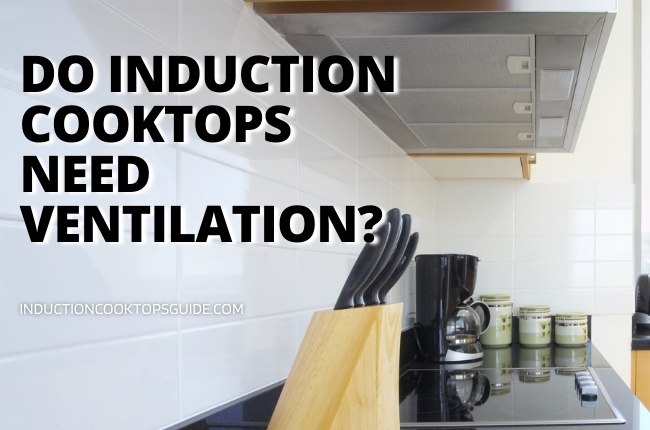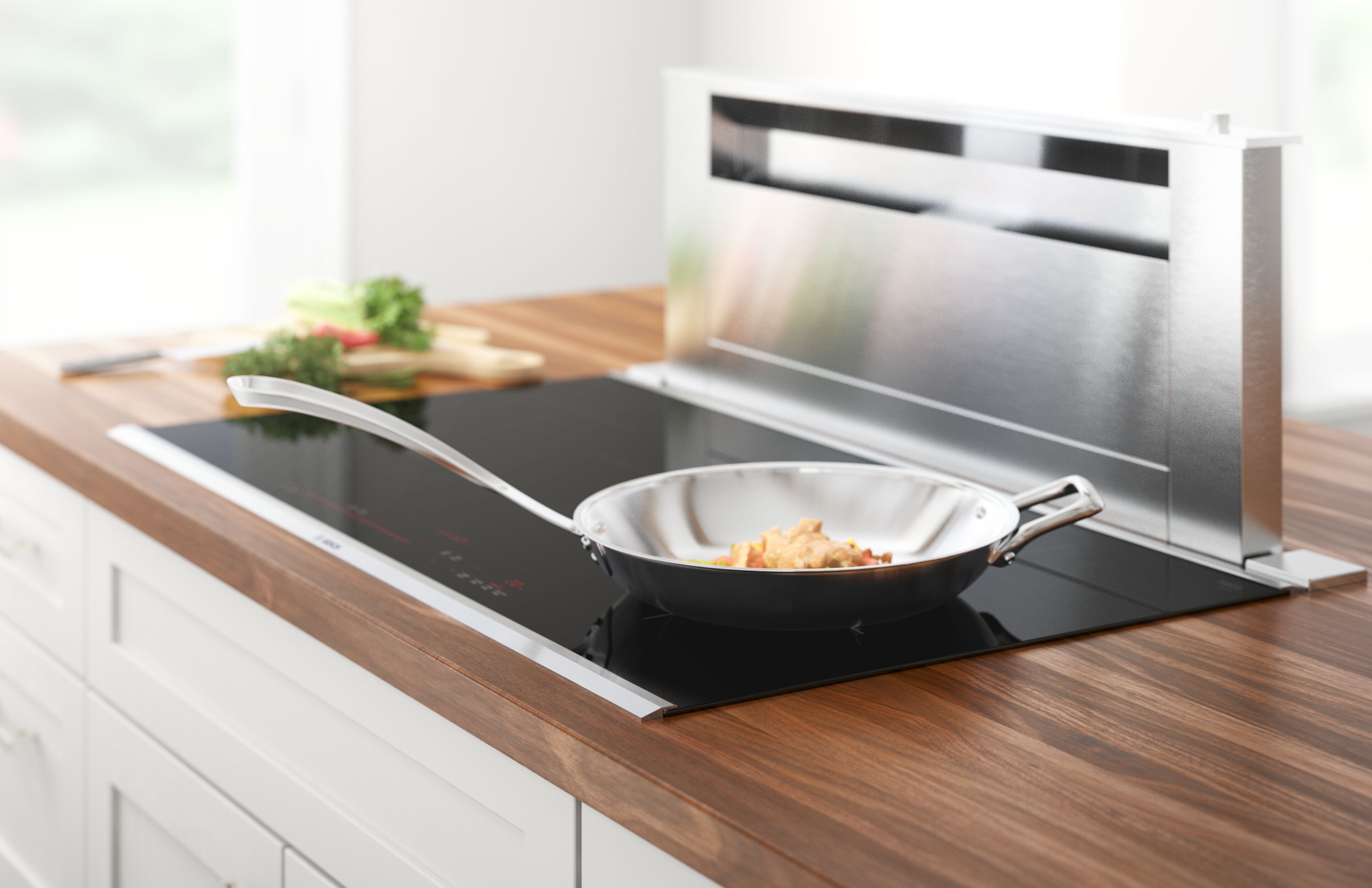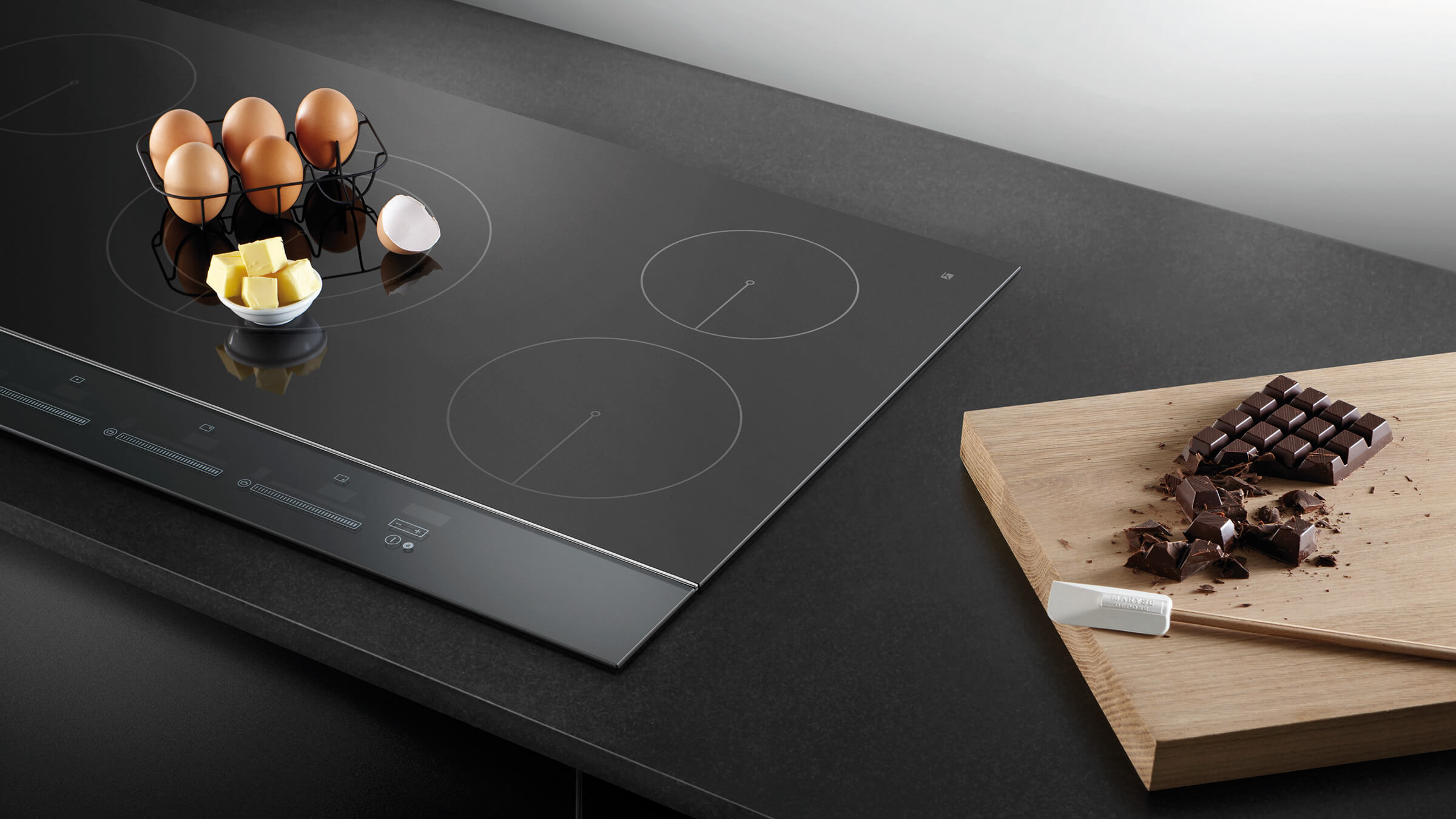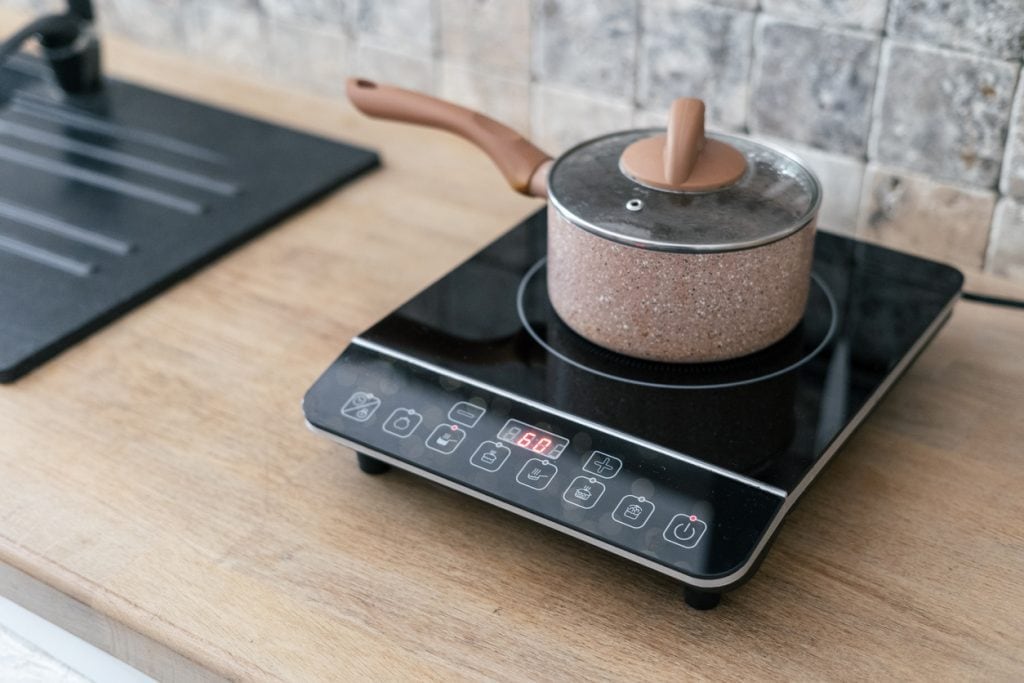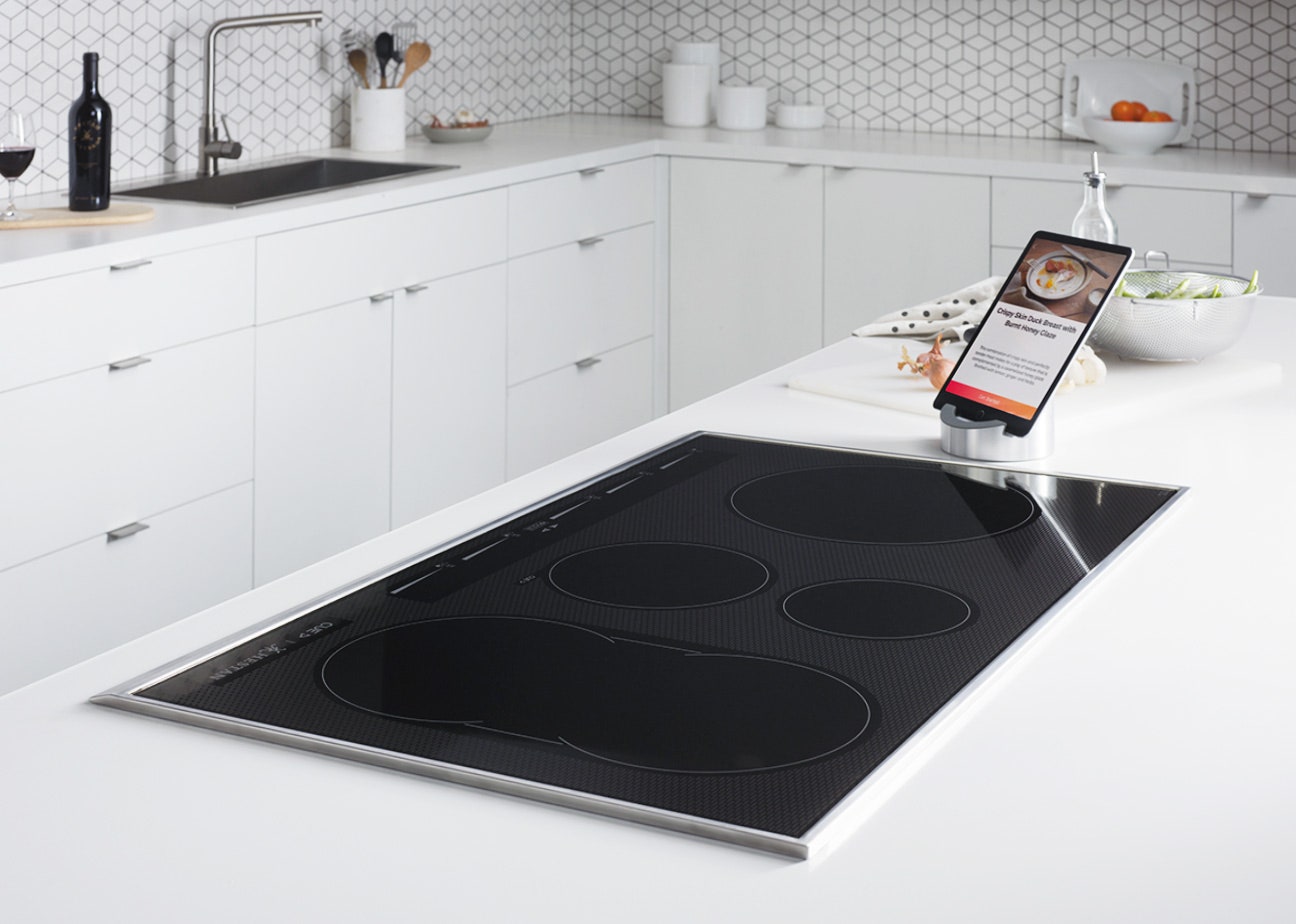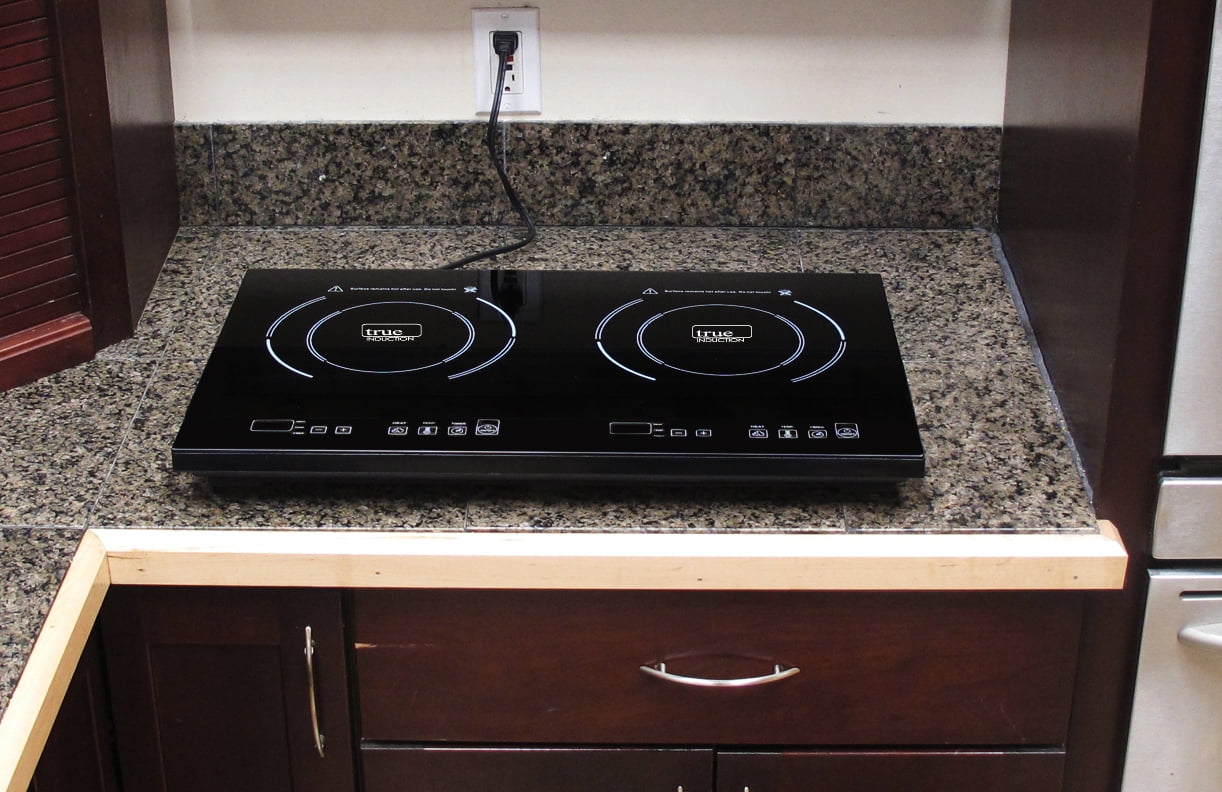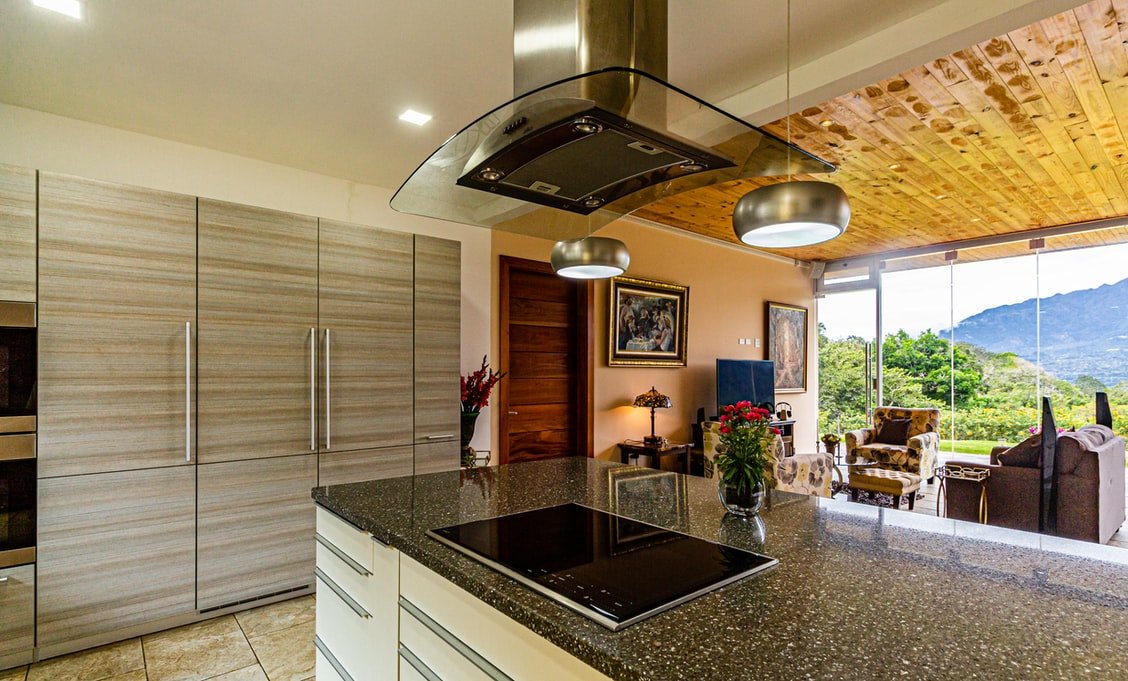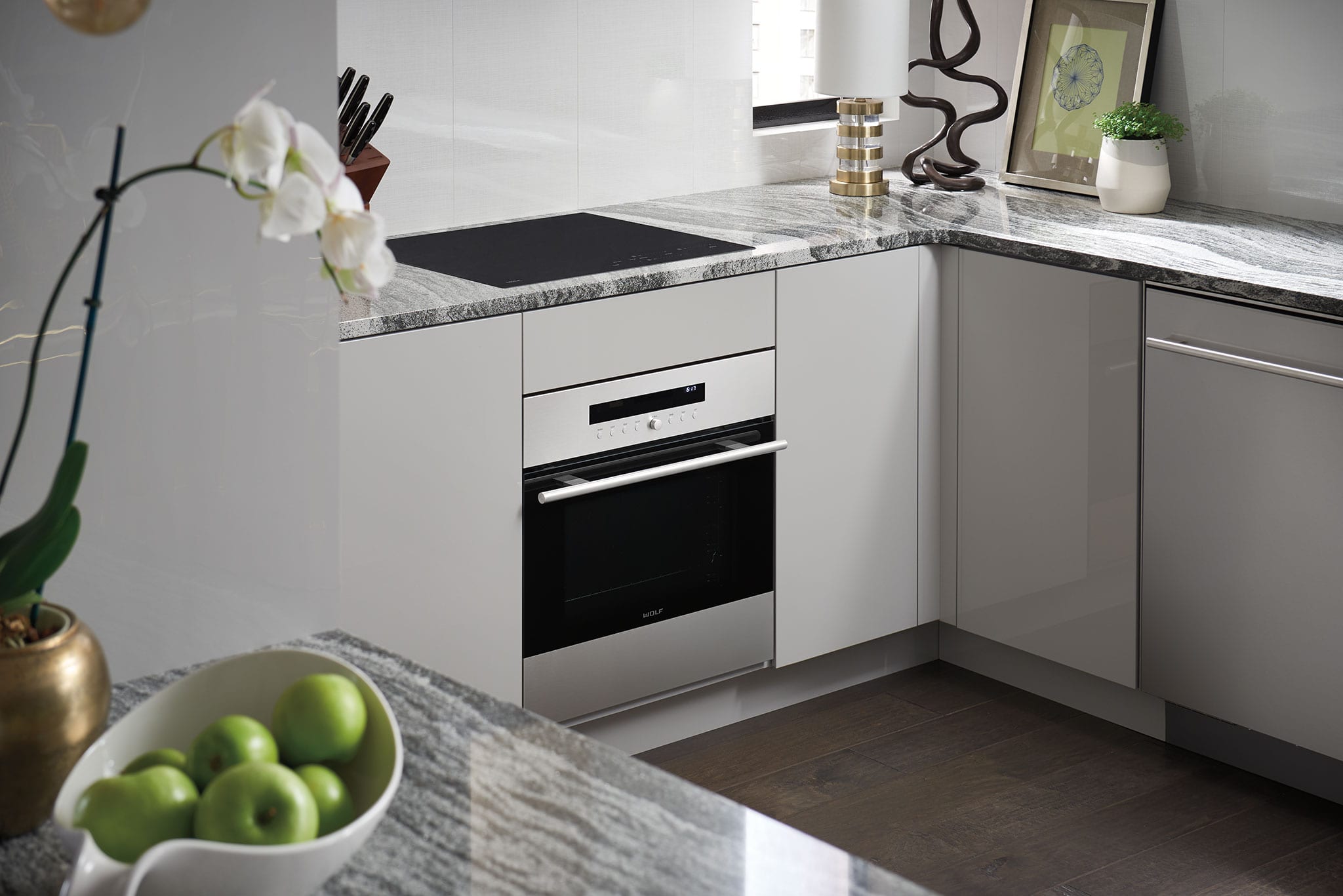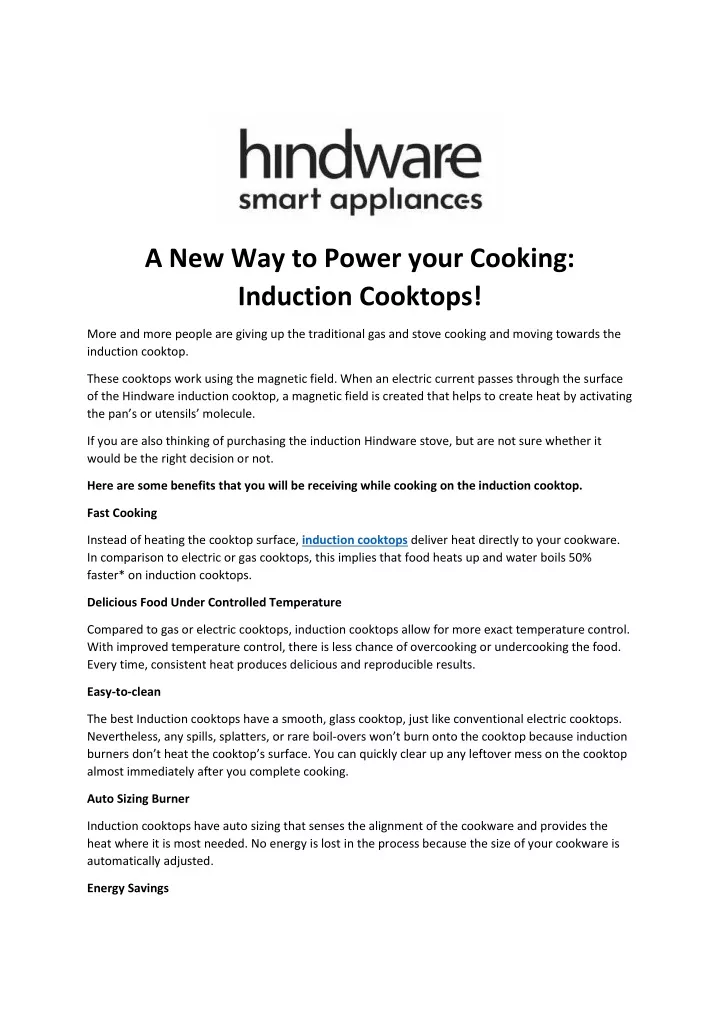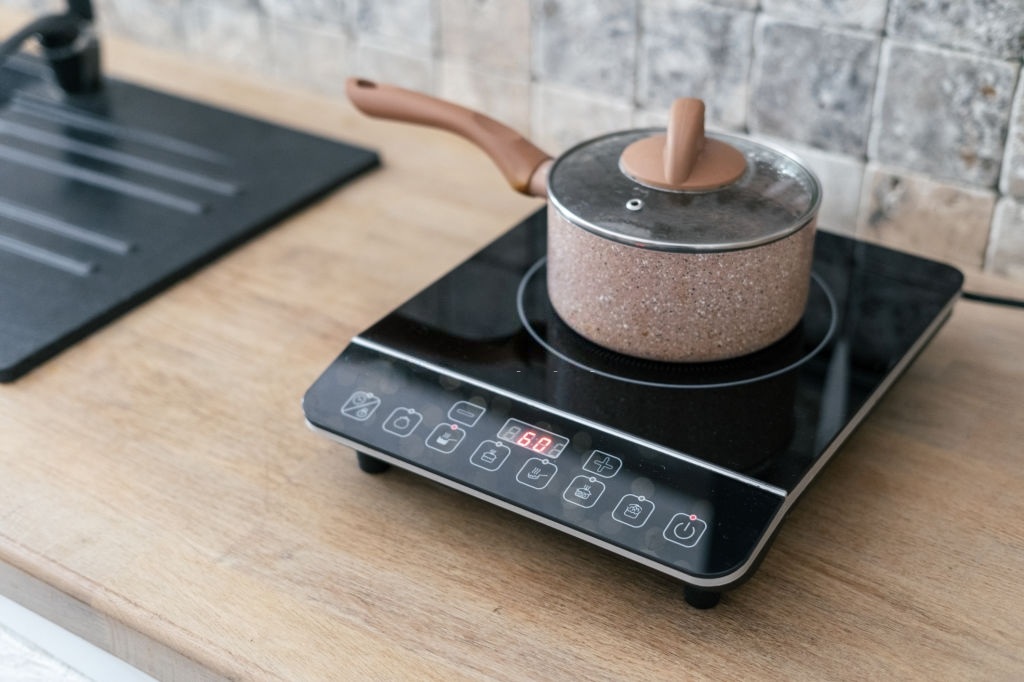When it comes to designing a modern and efficient kitchen, the type of cooktop you choose is an important decision. Induction cooktops have been gaining popularity in recent years, and for good reason. They offer a sleek and stylish design, as well as many practical benefits. If you're considering adding an induction cooktop to your kitchen, here are some design considerations to keep in mind. Key Features: One of the main advantages of induction cooktops is their speed and precision. They use electromagnetic energy to heat the cookware directly, resulting in faster cooking times and more control over the temperature. Look for models with multiple burners and different sizes to accommodate all of your cooking needs. Size and Placement: Induction cooktops come in a variety of sizes and shapes, so it's important to consider the layout of your kitchen when choosing the right one. If you have a smaller kitchen, you may opt for a smaller cooktop that can be installed on a kitchen island or countertop. For larger kitchens, a larger cooktop with multiple burners may be a better fit. Material Compatibility: Induction cooktops require the use of specific cookware made from magnetic materials, such as cast iron or stainless steel. If you already have a set of cookware, make sure they are compatible with induction cooktops before making a purchase. If not, factor in the cost of new cookware into your budget. Design Flexibility: Induction cooktops offer a sleek and modern design that can easily fit into any kitchen style. They are also available in different colors and finishes, so you can choose one that complements your kitchen's overall aesthetic. Some models even have touch controls and digital displays for a more futuristic look.Induction Cooktops: Design Considerations
If you're looking to upgrade your kitchen with an induction cooktop, there are many design ideas to consider. Not only do they offer practical benefits, but they can also make a bold statement in your kitchen design. Here are some ideas to get you started. Minimalist and Sleek: Induction cooktops have a sleek and streamlined design that can fit seamlessly into a minimalist kitchen. Pair it with white or neutral cabinets, and add pops of color with accessories to create a clean and modern look. Contrasting Colors: For a more dramatic look, you can choose an induction cooktop in a contrasting color to your cabinets. This can create a focal point in your kitchen and add a touch of personality to the space. Mixed Materials: Instead of opting for a traditional all-glass induction cooktop, consider choosing one with a mix of materials. A combination of glass and stainless steel or black ceramic can add visual interest and texture to your kitchen design. Open Shelving: Pairing an induction cooktop with open shelving can create an open and airy feel in your kitchen. The cooktop becomes a design element in itself, and the open shelving allows for easy access to cooking essentials. Integrated Design: For a more seamless look, you can choose to integrate your induction cooktop into your countertop. This creates a continuous surface and eliminates any raised edges, making it easier to clean.Induction Cooktops: Design Ideas
As with any kitchen appliance, there are pros and cons to consider when it comes to induction cooktops. Here are some of the advantages and disadvantages of choosing this type of cooktop for your kitchen. Pros:Induction Cooktops: Pros and Cons
Installing an induction cooktop is a relatively straightforward process, but there are a few things to keep in mind to ensure a smooth installation. Check Compatibility: Before purchasing an induction cooktop, make sure your kitchen is equipped with the necessary electrical wiring and circuits to handle the power requirements. If not, you may need to hire an electrician to make the necessary upgrades. Measurements: Take precise measurements of the space where you plan to install the cooktop to ensure a proper fit. This includes the width, depth, and height of the space. Ventilation: Induction cooktops do not produce as much heat as gas cooktops, but they still require proper ventilation to prevent overheating. Make sure there is enough space between the cooktop and cabinets or walls for air to circulate. Professional Installation: While some homeowners may be able to install an induction cooktop themselves, it's recommended to hire a professional for proper installation and to ensure safety.Induction Cooktops: Installation Tips
To ensure your induction cooktop stays in top condition, regular maintenance is required. Here are some tips to help you keep your cooktop clean and functioning properly. Cleaning: Use a non-abrasive cleaner and a soft cloth to wipe down the surface of the cooktop after each use. Avoid using harsh chemicals or abrasive sponges, as they can damage the surface. Remove Spills Immediately: If any spills occur while cooking, make sure to clean them up immediately. This will prevent them from hardening and becoming more difficult to remove. Check for Damage: Regularly inspect the cooktop for any cracks, scratches, or other damage. If you notice any, stop using the cooktop and contact a professional for repairs. Replace Filters: Some induction cooktops have filters that need to be replaced regularly. Check the manufacturer's instructions for the recommended replacement schedule.Induction Cooktops: Maintenance Guide
Induction cooktops are known for their energy efficiency, making them a popular choice for eco-conscious homeowners. Here are some ways in which induction cooktops can help you save energy and reduce your carbon footprint. Quick Heating: Induction cooktops heat up faster compared to other types of cooktops, which means less energy is used to reach the desired temperature. Less Heat Loss: Since induction cooktops only heat the cookware and not the surrounding area, there is less heat loss and therefore less energy wasted. Temperature Control: With precise temperature control, there is less chance of overcooking or burning food, resulting in less energy being used. Timer Function: Some induction cooktops come with a timer function, which can help you save energy by automatically turning off the cooktop after a set amount of time.Induction Cooktops: Energy Efficiency
In addition to their energy efficiency, induction cooktops also offer several safety features that make them a popular choice for households with young children or pets. Cool Surface: Since the surface of an induction cooktop remains cool, there is a reduced risk of burns or injuries from accidental contact. Child Lock: Many induction cooktops come with a child lock feature, which prevents any accidental changes to the settings or turning on the cooktop. Automatic Shut-Off: Some models have an automatic shut-off feature, which turns off the cooktop after a period of inactivity, providing an extra layer of safety. Pan Detection: Induction cooktops can only work when the correct cookware is placed on the burner. If there is no pan or an incompatible pan is used, the cooktop will not turn on, preventing any accidents.Induction Cooktops: Safety Features
For those with smaller kitchens or limited counter space, induction cooktops offer a space-saving solution without sacrificing functionality. Compact Design: Induction cooktops come in a variety of sizes, including compact options that can easily fit on a kitchen island or countertop. Efficient Use of Space: Since only the cookware is heated, you can place multiple pots and pans on the cooktop at the same time, making the most of the available space. Integrated Design: As mentioned earlier, some induction cooktops can be integrated into the countertop, creating a seamless and space-saving solution. Portable Options: If you have limited counter space, you can also opt for a portable induction cooktop that can be stored away when not in use.Induction Cooktops: Space-Saving Solutions
Induction cooktops are a popular choice for modern kitchen designs, thanks to their sleek and stylish appearance. Here are some ways to incorporate an induction cooktop into your kitchen's overall design. Open Concept: Induction cooktops are a great choice for open-concept kitchens, as they don't have any visible gas lines or bulky elements, creating a clean and seamless look. Contrasting Materials: As mentioned earlier, you can choose an induction cooktop with a mix of materials to create a unique and modern look in your kitchen. Smart Technology: Some induction cooktops come with smart technology, allowing you to control and monitor the cooktop from your smartphone or other devices. Minimalist Aesthetic: Induction cooktops have a minimalistic design that can easily fit into a modern kitchen with clean lines and minimal clutter.Induction Cooktops: Modern Kitchen Designs
Induction cooktops offer versatile cooking options, making them a great choice for any kitchen. Here are some ways in which you can use your induction cooktop to create a variety of dishes. Precise Temperature Control: With precise temperature control, you can easily cook delicate dishes that require a specific temperature, such as melting chocolate or making a sauce. Stir-Fry: Induction cooktops heat up quickly and evenly, making them perfect for stir-frying. You can adjust the temperature as needed and achieve the perfect sear on your vegetables or protein. Boiling and Simmering: The ability to quickly bring water to a boil and then lower the temperature to a simmer makes induction cooktops ideal for making soups, stews, or pasta dishes. Grilling and Searing: Some induction cooktops come with a grilling or searing function, allowing you to achieve the same results as a traditional gas or charcoal grill. In conclusion, induction cooktops offer many benefits and can be a great addition to any kitchen design. Consider these design considerations, ideas, and tips when choosing the right induction cooktop for your home. With their efficiency, safety features, and versatility, it's no wonder they are becoming a popular choice among homeowners. So why not join the trend and upgrade your kitchen with a modern and stylish induction cooktop today?Induction Cooktops: Versatile Cooking Options
Efficiency and Convenience in Cooking with Induction Cooktops
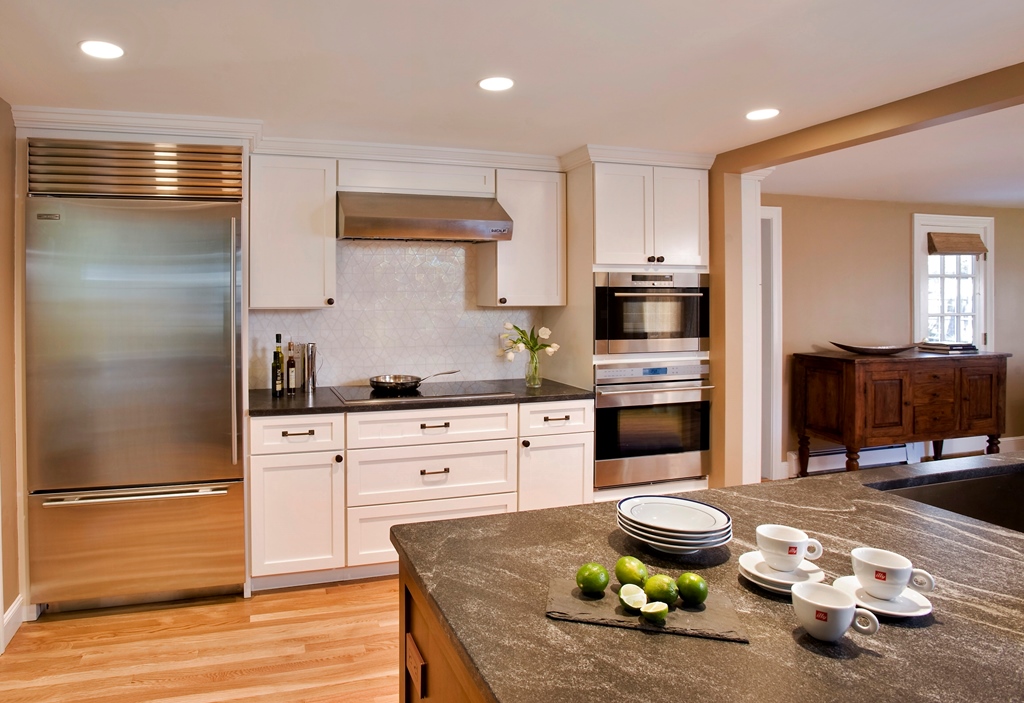
Streamlining the Cooking Process
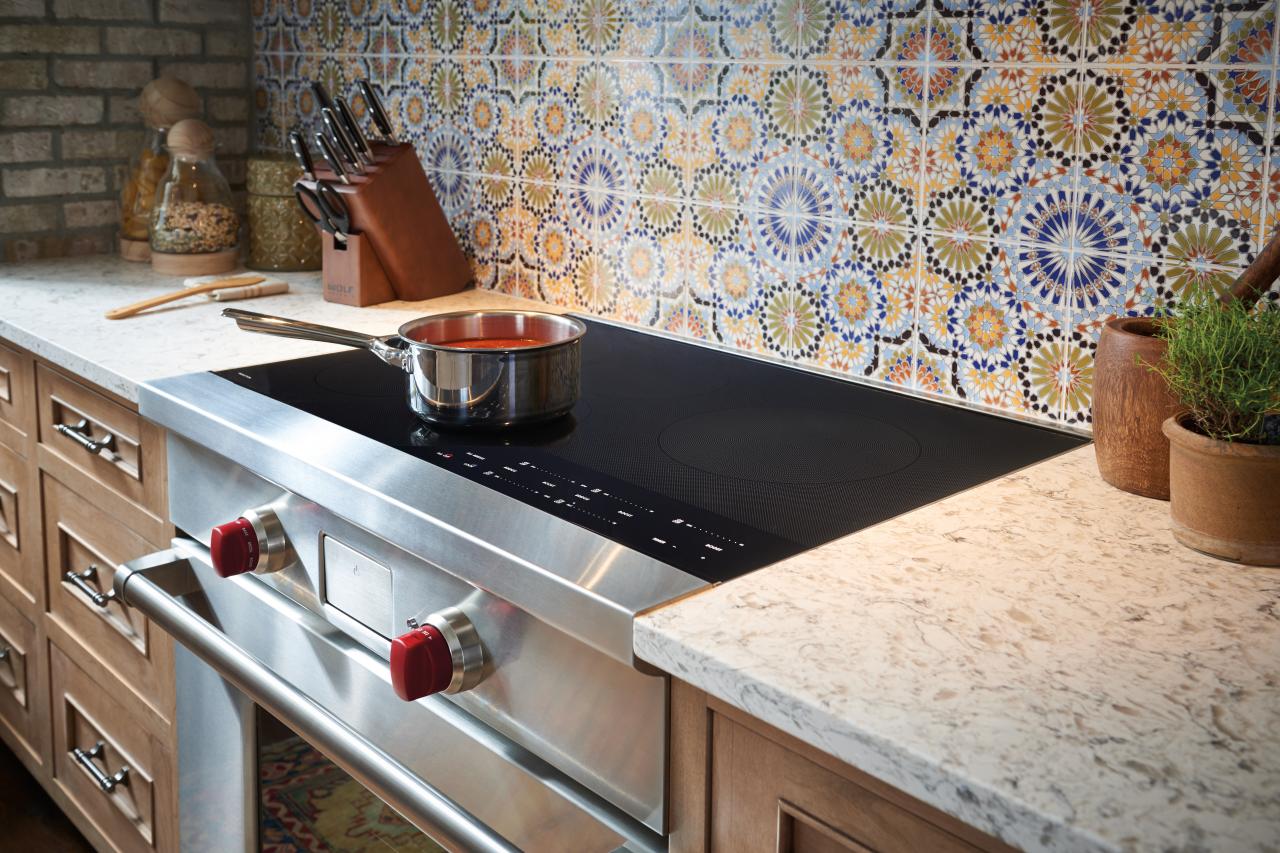 In today's fast-paced world, homeowners are constantly looking for ways to make their daily tasks more efficient. This is especially true when it comes to cooking, as the kitchen is the heart of the home and meal preparation can take up a significant amount of time. This is where induction cooktops come in, providing a faster, safer, and more convenient way to cook.
Induction cooktops
use electromagnetic energy to heat and cook food, rather than relying on a heating element like traditional gas or electric stoves. This allows for a quicker response time and more precise temperature control, resulting in faster cooking times and more evenly cooked meals. In fact, studies have shown that
induction cooktops
can reduce cooking times by up to 50%, making them a game-changer in the kitchen.
In today's fast-paced world, homeowners are constantly looking for ways to make their daily tasks more efficient. This is especially true when it comes to cooking, as the kitchen is the heart of the home and meal preparation can take up a significant amount of time. This is where induction cooktops come in, providing a faster, safer, and more convenient way to cook.
Induction cooktops
use electromagnetic energy to heat and cook food, rather than relying on a heating element like traditional gas or electric stoves. This allows for a quicker response time and more precise temperature control, resulting in faster cooking times and more evenly cooked meals. In fact, studies have shown that
induction cooktops
can reduce cooking times by up to 50%, making them a game-changer in the kitchen.
Safety First
 One of the biggest concerns when it comes to cooking is safety, and induction cooktops address this issue in a few ways.
Induction cooktops
remain cool to the touch, as the heat is generated directly in the cookware rather than on the surface. This eliminates the risk of burns and other accidents, making them a great option for families with young children.
Additionally,
induction cooktops
have built-in safety features such as automatic shut-off and pan detection, ensuring that the cooktop turns off when there is no cookware on the surface or when the cooking is complete. This not only prevents accidents but also saves energy, making it an environmentally friendly choice.
One of the biggest concerns when it comes to cooking is safety, and induction cooktops address this issue in a few ways.
Induction cooktops
remain cool to the touch, as the heat is generated directly in the cookware rather than on the surface. This eliminates the risk of burns and other accidents, making them a great option for families with young children.
Additionally,
induction cooktops
have built-in safety features such as automatic shut-off and pan detection, ensuring that the cooktop turns off when there is no cookware on the surface or when the cooking is complete. This not only prevents accidents but also saves energy, making it an environmentally friendly choice.
Seamless Integration into Kitchen Design
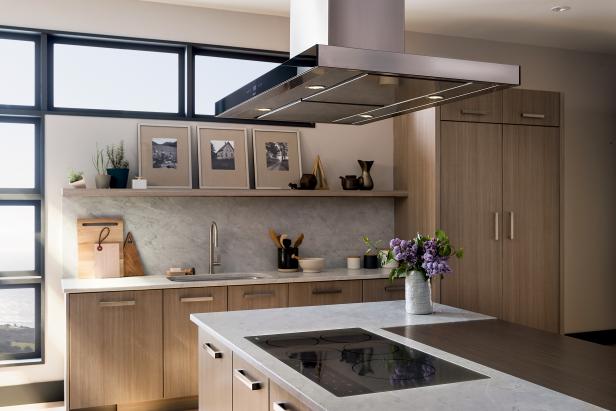 Apart from their functional benefits,
induction cooktops
also offer a sleek and modern aesthetic that can elevate any kitchen design. With their smooth, flat surface, they are easy to clean and maintain, making them a popular choice for busy homeowners. They also come in a variety of sizes and configurations, allowing for flexibility in kitchen layout and design.
With their efficient and convenient features, it's no wonder that
induction cooktops
are becoming increasingly popular in kitchen design. From their time-saving capabilities to their focus on safety, they are a great addition to any modern home. So why not consider incorporating an induction cooktop into your kitchen design and make cooking a more enjoyable and hassle-free experience?
Apart from their functional benefits,
induction cooktops
also offer a sleek and modern aesthetic that can elevate any kitchen design. With their smooth, flat surface, they are easy to clean and maintain, making them a popular choice for busy homeowners. They also come in a variety of sizes and configurations, allowing for flexibility in kitchen layout and design.
With their efficient and convenient features, it's no wonder that
induction cooktops
are becoming increasingly popular in kitchen design. From their time-saving capabilities to their focus on safety, they are a great addition to any modern home. So why not consider incorporating an induction cooktop into your kitchen design and make cooking a more enjoyable and hassle-free experience?


